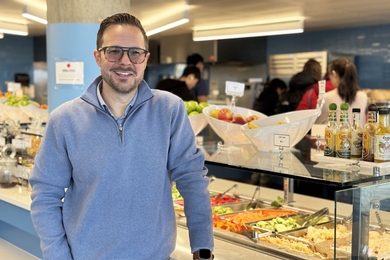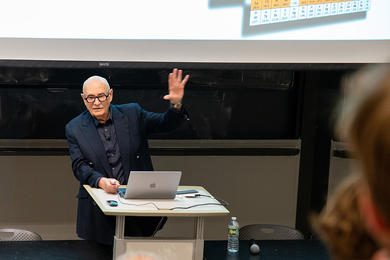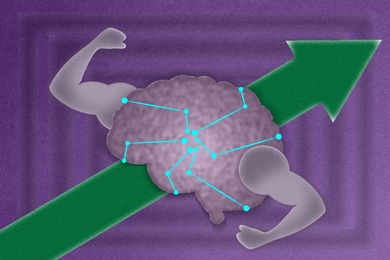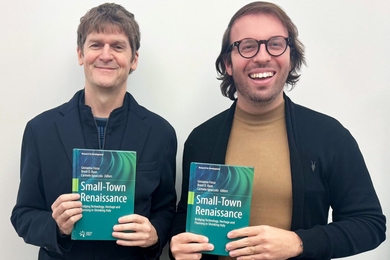MIT's Computer Science and Artificial Intelligence Laboratory (CSAIL) and Nokia Research Center today announced a research collaboration to advance the state of the art in mobile computing and communications technologies.
CSAIL and Nokia will establish a new research facility - the Nokia Research Center Cambridge - near the MIT campus, where researchers from MIT and Nokia will work closely together on a new vision for mobile computing.
"Information and communication technologies are becoming ever more critical in all aspects of our personal and professional lives," said MIT President Susan Hockfield. "By carrying out long-term research in these fields, including novel uses of hand-held devices, MIT and Nokia will make new communication opportunities and services available for people around the globe."
"For Nokia, this is a fresh approach to our research collaboration with universities," said Dr. Bob Iannucci, head of Nokia Research Center. "Bringing together the collective expertise of MIT and Nokia in mobile computing and communications provides a vehicle for rapidly generating new concepts and bringing innovations to the marketplace on a large scale."
The collaborative work of the Nokia Research Center Cambridge will center on a view of the future where small handheld devices such as mobile phones will become parts of an "ecosystem" of information, services, peripherals, sensors and other devices. Research will address new user interfaces that incorporate speech and other modalities, new mobile computing platforms - including low power hardware platforms and wireless communication, as well as new software architectures. Researchers will also address new ways of managing information: The use of Semantic Web technologies - an extension of the current Web developed in part at CSAIL and at the Nokia Research Center - will enable devices to more intuitively and automatically understand interconnected terms, information and services.
Approximately twenty researchers from MIT and twenty researchers from Nokia will participate in joint projects under the direction of a joint steering committee. Dr. James Hicks from Nokia Research Center has been named director of the Nokia Research Center Cambridge. Professor Arvind, Johnson Professor of Computer Science and Engineering, will be the program manager.
"This is a totally unique kind of collaboration for both MIT and Nokia," said Professor Rodney Brooks, director of CSAIL. "Unlike most university-industry alliances, where researchers work at their own pace ¬- often at opposite ends of the globe - the joint laboratory with Nokia will bring a dynamic group of scientists into close physical proximity in an open, creative and dynamic environment."
This new collaboration builds on the foundation of a strong relationship formed during past collaborations between MIT and Nokia. Most recently, Nokia was a founding partner in the MIT Oxygen Alliance, a major research project involving more than 150 researchers at CSAIL with the goal of creating a new breed computers devoted to serving people's needs.
The Nokia Research Center Cambridge will be located in the Kendall Square area of Cambridge, Massachusetts, a five-minute walk from CSAIL's main headquarters. It will begin operations on January 1, 2006. Five initial research projects have already been planned.
About MIT/CSAIL
The MIT Computer Science and Artificial Intelligence Laboratory was formed on July 1st, 2003 by the merger of the Artificial Intelligence Laboratory and the Laboratory for Computer Science. It is an interdepartmental laboratory that includes faculty from Electrical Engineering and Computer Science, Mathematics, Brain and Cognitive Science, Aeronautics and Astronautics, Ocean Engineering, Earth, Atmospheric and Planetary Sciences, the Biological Engineering Division and the Harvard-MIT Division of Health Sciences and Technology. CSAIL is also the home of the World Wide Web Consortium. With more than 90 Principal Investigators and 800 members, CSAIL is the largest laboratory on the MIT campus.
The primary mission of CSAIL is research in many aspects of computation and artificial intelligence. It is organized into four broad research directorates: 1) Architecture, systems, and networks, 2) Theory, 3) Language, learning, vision, and graphics, and 4) Physical, biological, and computational systems.
Over the past four decades, members of CSAIL and its predecessors have been responsible for many of the innovations in computer science and information technology, including time sharing, public key encryption, bit-mapped displays, TCP/IP, personal workstations, Web standards, computer vision, speech, and robotics. CSAIL members have distinguished themselves as members of the U.S. Academy of Sciences and Engineering (17), recipients of the MacArthur Foundation Genius Award (6), Turing Award (4), Japan Prize (2), and Millennium Technology Award. Technology transfer from CSAIL is often accomplished through startups; some of them include Akamai, Cognex, iRobot, OpenMarket, RSA Data Security, Silicon Spice and SpeechWorks.
For more information about CSAIL, please visit http://www.csail.mit.edu
About Nokia
Nokia is a world leader in mobile communications, driving the growth and sustainability of the broader mobility industry. Nokia connects people to each other and the information that matters to them with easy-to-use and innovative products like mobile phones, devices and solutions for imaging, games, media and businesses. Nokia provides equipment, solutions and services for network operators and corporations
About Nokia Research Center
Interacting closely with all Nokia business groups, Nokia Research Center is responsible for the strategic and long-term research in Nokia. Nokia Research Center participates in the standardization work and various international R&D projects in cooperation with universities and research institutes. Looking beyond current product development, the Research Center drives Nokia's renewal through long-term technology exploration. Nokia Research Center employs 1,200 people and has activities in Finland, USA, Germany, Hungary, China and Japan.
A version of this article appeared in MIT Tech Talk on November 2, 2005 (download PDF).





